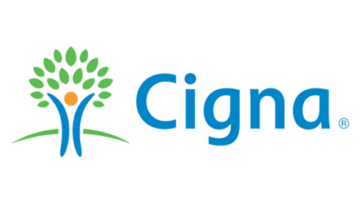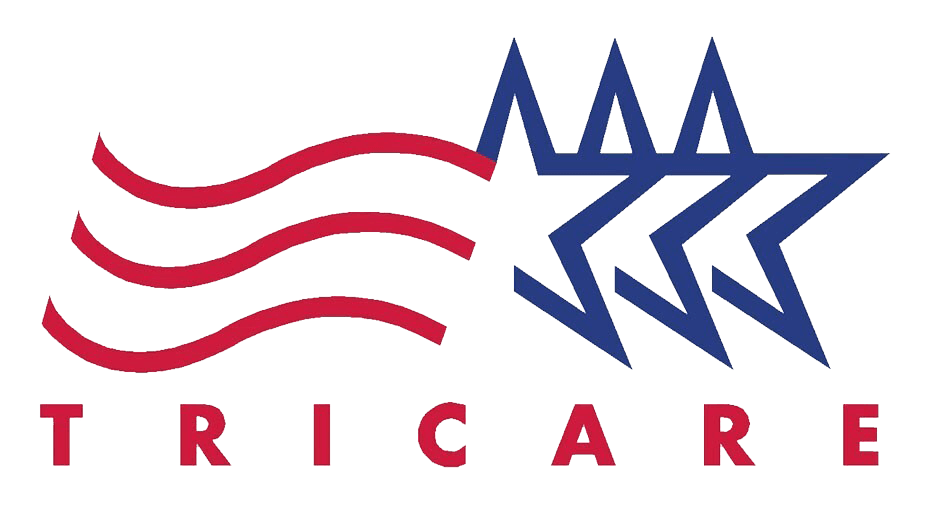Those of us born before 1983 remember a time when there were no phones except for our house phone and payphones that were near almost every gas station. That being said, the world of phones we live with today are quite a different reality. What started as a device that connects us to family and help at any time of the day, in almost any area, has turned into the ultimate form of convenience. From shopping, to paying bills, to checking-in on an airline- phones are part of everyday life for most people in the world.
While a smartphone can be a hugely productive tool, compulsive use of a handheld phone can interfere with work, school, and relationships. We need to talk about phone addiction when you or someone you love spends more time on their device than in actual life. When you find yourself unable to stop from repeatedly checking your phone, whether because of online gaming or social media just to start- there may be concern. This is especially true when the real world seems to be less enjoyable and you feel like you are experiencing negative consequences in your life. One of the first steps you or someone you love can take is learning more about what phone addiction is, looks like, and where to seek treatment for phone addiction.
What Is Having A Phone Addiction Considered To Be?
With so many convenient uses for smartphones in today’s world, it can understandably be confusing on whether it’s usage is normal or concerning. For people who own their own business or work from home, a smartphone may be a must for success. In a world that spends a lot of their time online, our phone can be the connecting piece for both personal and professional reasons. However, the most concerning group of our population most prone to phone addiction are those still too young to work. Young adults, teenagers, and even children are now increasingly becoming more addicted to their phone.
Phone Addiction is a disorder involving compulsive overuse of mobile devices or phone. Usually quantified by the number of times a user accesses their devices, and/or the total amount of time they spent online over a specified period. While it is rarely the phone or devices themselves that create the addiction, the addiction is more of the games, apps, platforms, and online worlds it connects us to. In fact, one of the newest phobias found today is Nomophobia- the fear of being without a mobile phone or without access to a mobile phone. With phones more likely than not staying in our world, we need to talk about phone addiction. Below are some of the most commonly observed signs of phone addiction seen in all groups of people.
Observable Signs Of Phone Addiction
- Chronic impulsiveness to check your phone.
- Conscious use of a phone in dangerous situations such as crossing the street or driving.
- Excessive phone use that causes social and family conflicts and confrontations.
- Phone is a noticeable distraction and disturbance at work and in social settings.
- A loss of interest in other activities outside of phone use.
- Needing to respond immediately to social media or text messages.
- Continuing to use the phone despite the negative effects, challenges, and conflicts.
Recognizing Your Own Phone Addiction
Just as each of us is different, so may be the signs of phone addiction for each individual. However, the above outlined are the most common observed today and can help in distinguishing a concern from a major concern of phone usage. If you are wondering if You have a phone addiction, try to be as honest as possible with yourself. Are there noticeable changes in your personal family relations, friendships, or an intimate relationship? Are you experiencing any challenges in school or at work? How often do you look Up? Are you experiencing any physical changes or problems with your body that could be related to prolonged phone use?
These are important questions to ask yourself and answer truthfully in determining if we need to talk about phone addiction. Every single one of us want to live our best life, and there are professionals waiting for you to give support, treatment, and help with every step of the way. In fact, at Omega Recovery, the leading founder has his own personal experience with technology addictions such as phone addiction. From our own experiences do we find some of the greatest answers life has to offer. Hence why some of us, such as Dr. Nicholas Kardaras at Omega Recovery, are so eager to share and offer these well earned tools of discovery for living our best life.
Who Is In Need Of Treatment For Phone Addiction?
Whether you are concerned about yourself or someone you love, the first step toward recovery is recognizing a problem. Do you or someone you love have Nomophobia? This irrational fear of being without a mobile phone or being unable to use a phone because of a poor signal or low battery is a sure tell sign. While most people today have experienced some degree of Nomophobia, some have crossed the threshold of full-blown terror at the thought of life without a smartphone.
Understanding the Dependence
This type of extreme dependence is when we need to talk about phone addiction. This applies whether with ourselves or someone we care about. Others suffer from severe FOMO (Fear of Missing Out for those not acquainted with texting verbiage). They feel compulsively driven to check their phones for calls, texts, tweets or messages. The fear of missing out on some life-affirming and identity-validating bit of phone-delivered information is intensely strong.
Part of the reason why so many people are becoming increasingly addicted to their phone has to do with our devices’ interaction. It interacts with our brain. Most often people become addicted to the little dopamine reward we receive. This is delivered via our phone every time we actually check our phone. There is a similarity between behavioral addictions and phone addictions. Both trigger a chemical in the brain that reinforces the addiction. The brain contains several pathways that transmit a feel-good chemical called dopamine. This occurs when you are in a rewarding situation. For many people, they get a dopamine release from social interactions online. Social media platforms especially trigger this. Because so many people use their phones as tools for social interaction, we need to talk. We need to talk about phone addiction.
The Cycle of Compulsion
People of all ages can become accustomed to constantly checking their phone. They seek that hit of dopamine. This is released when they connect with others on social media or other apps. In fact, programmers for these apps are counting on that drive. They want to keep you checking your phone. Some apps even withhold and release social reinforcements. These include “comments” and “likes.” We receive them in an unpredictable pattern. When the phone user can predict the pattern, they check their phones more often. This cycle can lead to a tipping point. Your phone ceases to be something you enjoy. It becomes something you are virtually compelled to use. Hence why recognition of concerning behaviors is key. This helps in knowing if we need to talk about phone addiction. Sooner rather than later!
We Need To Talk About Phone Addiction
“Unfortunately, it seems that we, as a society, have entered into a Faustian deal. Yes, we have these amazing handheld marvels of the digital age – tablets and smartphones – miraculous glowing devices that connect people throughout the globe and can literally access the sum of all human knowledge in the palm of our hand. But what is the price of all this future tech? The psyche and soul of an entire generation. The sad truth is that for the oh-so-satisfying ease, comfort and titillation of these jewels of the modern age, we’ve unwittingly thrown an entire generation under the virtual bus.” -Dr. Kardaras
At Omega Recovery, Dr. Nicholas Kardaras, one of the country’s foremost experts on treating tech and smart phone addiction and the author of the best-selling book “Glow Kids”, has developed a comprehensive and immersive 8-week program designed to not only treat the phone addiction, but to also address any and all underlying issues that may be contributing to the addiction. He understands that we need to talk about phone addiction, sooner rather than later. Many of those struggling with smart phone addiction have low self-esteem issues, depression, anxiety, low resilience, shame, and/or even trauma. Oftentimes addicted to their phone struggle to find real purpose and meaning in their lives.
Addressing the Root Causes
At Omega Recovery, Dr. Kardaras’s unique program does indeed address all those underlying issues. Yes, there is a digital detox period, but during that digital detox, the real work of self-discovery—and long-term recovery—occur. We meaningfully engage our tech and phone addiction clients and connect them to caring, well-trained masters-level therapists trained by Dr. Kardaras and certified by the NIDHW (National Institute for Digital Health and Wellness). At Omega Recovery clients begin to do the underlying psychodynamic work so that they can build a stronger and more empowered sense of their own identity. One without the constant impulsive need to check their phones.
Omega Recovery Is The Best Place To Break Free From Phone Addiction
At Omega Recovery, we take pride in being the country’s best program. We specialize in the complex issues of the Digital Age—phone addiction. Our future generations will be fully immersed in technology. This is why we need to talk about phone addiction NOW! In our Community Integrated Treatment Model, our Omega clients engage in living in the real world once again. All with the added benefit that we make the healing and recovery process fun. We help them find their real passion! Oftentimes, phones become a substitute for a young person. They feel bored, lost, depressed, adrift and lacking any real sense of purpose or direction.
Omega Recovery helps clients find that meaningful sense of passion, purpose, and direction. They find it in their life. By living cooperatively in a treatment house in a vibrant community, we utilize opportunities. The thriving city of Austin provides these. We use all the social, nature-based, cultural, educational and economic opportunities available. Austin is an amazing city. The recovering phone client gets the full clinical impact of an inpatient program. This comes as a much more comfortable, non-institutional alternative to traditional Inpatient Phone Addiction Treatment. Dr. Kardaras has found that this type of treatment setting has better recovery outcomes. It is a more authentic and organic living and therapeutic environment. This translates into a smoother transition post-treatment.
Digital Re-Entry and Post-Treatment Support
Towards the end of treatment, the client works with their therapist to slowly begin to reintegrate mindful tech usage back into their lives. Our experienced professional staff help to create a “digital re-entry” plan so that our clients and their families have a clear road-map of the transition back to our highly technological world. The recovered tech client struggling with phone addiction needs to know how to balance healthy tech usage. Especially after recovery as they transition back into their lives of school, work, relationships, or any other passion that they may have. At Omega Recovery we assist our clients in post-treatment transition planning that includes aftercare, case management, peer coaching, job placement, recovery housing and much more. We walk our clients thru every step of the way toward recovery, leaving phone addiction as an overcome hiccup in their beautiful road.
“Humans simply weren’t genetically designed for technologically driven 21st century living; we weren’t meant to be sedentary, screen-staring, lonely and meaning-devoid beings. Unfortunately, this modern way of life runs counter to our primal needs for human connection, physical activity and a sense of meaning and purpose in our lives. Because of that, we have a modern mental health pandemic with the highest recorded rates of depression, suicide, addiction, loneliness, overdose, anxiety, and ADHD. And Covid only made all these dynamics much worse. Yet most cookie-cutter treatment programs don’t really understand these issues, nor how to treat them. At Omega Recovery, we not only understand these complex issues, but we’ve developed the best clinical program to treat them.” -Dr. Kardaras







